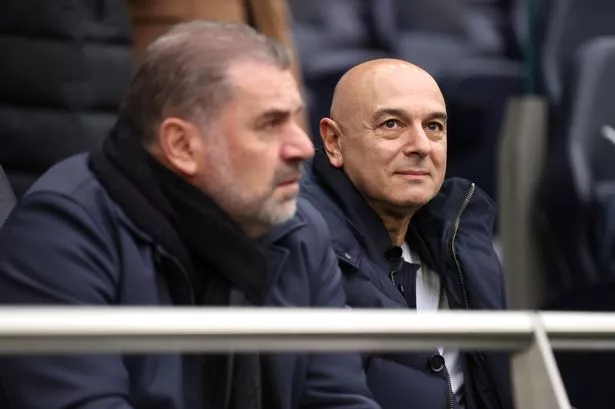Tottenham Hotspur finds itself in a peculiar crossroads, with angst and ambition intertwining in equal measure.
The club’s chairman, Daniel Levy, has become a central figure in this narrative, embodying both the hopes and frustrations of a fanbase desperate for success. Amid the passion, there is also discord—a reflection of the identity crisis that continues to plague Spurs.
In their last Premier League home game against Chelsea, tensions boiled over among the supporters. Two fans clashed in the South Stand, not over a controversial referee decision or a misstep by manager Ange Postecoglou, but over Levy himself. This rare scene encapsulates the unique complexities at Tottenham, a club where the boardroom often feels as pivotal as the pitch.
Tottenham’s journey is a study in contrasts. The club boasts a world-class stadium generating revenues second only to Manchester United, yet their trophy cabinet has remained untouched since the 2008 League Cup. In a season filled with both thrilling victories over Manchester’s giants and unexpected defeats to less illustrious opponents, Spurs hover in mid-table, their goal difference reflecting both their attacking prowess and defensive frailties.
At the center of it all is Postecoglou, whose arrival brought a breath of fresh air. His attacking philosophy has rekindled the love of football among many fans, but it has also exposed vulnerabilities. Matches like the 4-3 loss to Chelsea highlight the fine margins between triumph and disaster in his high-risk approach. Even a thrilling Carabao Cup quarter-final win over Manchester United was marked by defensive lapses, turning a 3-0 lead into a nervy 3-2 finish.
Advertisement
Latest Press Conference
We’re on Social Media



Levy’s tenure has often been a lightning rod for criticism. Recent protests have targeted his decisions on ticket pricing and concessions, with chants in the stands reflecting a growing dissatisfaction. Yet the chairman’s defenders point to his efforts to modernize the club’s operations, including a shift towards data-driven recruitment under technical director Johan Lange. The summer arrivals of promising talents like Lucas Bergvall and Archie Gray signal a long-term vision, even as some fans lament the lack of immediate impact.
Levy’s approach to spending remains a contentious issue. While Tottenham’s net outlay over two decades exceeds £700 million, critics argue that key opportunities to invest in on-field success were squandered—most notably following their 2019 Champions League final appearance. Levy’s belief in financial sustainability contrasts sharply with the high-spending philosophies of rival clubs, leaving many to question whether Spurs can compete at the highest level without taking bigger risks.
Postecoglou’s philosophy is unwavering. His tactics, rooted in a belief in proactive, possession-based football, have drawn admiration and scrutiny in equal measure. But as injuries deplete his squad, the lack of depth becomes evident. Critics have also noted his reluctance to bring experienced staff from his successful stints in Scotland and Australia, leaving him surrounded by a relatively untested coaching team.
Spurs’ Story
The story of Spurs is also one of near-misses. Tales of failed transfers, such as the collapse of deals for Bruno Fernandes and Luis Díaz, haunt the fanbase. These moments fuel the narrative of “nearly but not quite” that has come to define Tottenham in the eyes of their critics. Levy and his team are determined to change this, with efforts to modernize recruitment and retain young talents like Mikey Moore—a rising star whose contract reflects a bold new approach.
Postecoglou’s relationship with his players is another layer of intrigue. Unlike predecessors Mourinho and Conte, he commands both respect and affection. Yet, his insistence on sticking to his principles, even when they lead to costly mistakes, divides opinion. For fans longing for a trophy, any silverware will suffice, but the question remains whether Postecoglou’s philosophy can deliver in a league as unforgiving as the Premier League.
The contrast between Levy and Postecoglou—the pragmatist and the idealist—raises questions about Tottenham’s future. Can a manager who prioritizes culture and individuality thrive under a data-driven recruitment model? And can Levy’s measured approach satisfy a fanbase craving immediate glory?
Tottenham’s journey is a perpetual balancing act. With a Carabao Cup semi-final on the horizon and a Premier League season hanging in the balance, Spurs remain a club of immense potential and lingering doubts. As Postecoglou said recently, “A prime minister has an election every few years. I have one every weekend.” For Tottenham, the stakes feel just as high.
